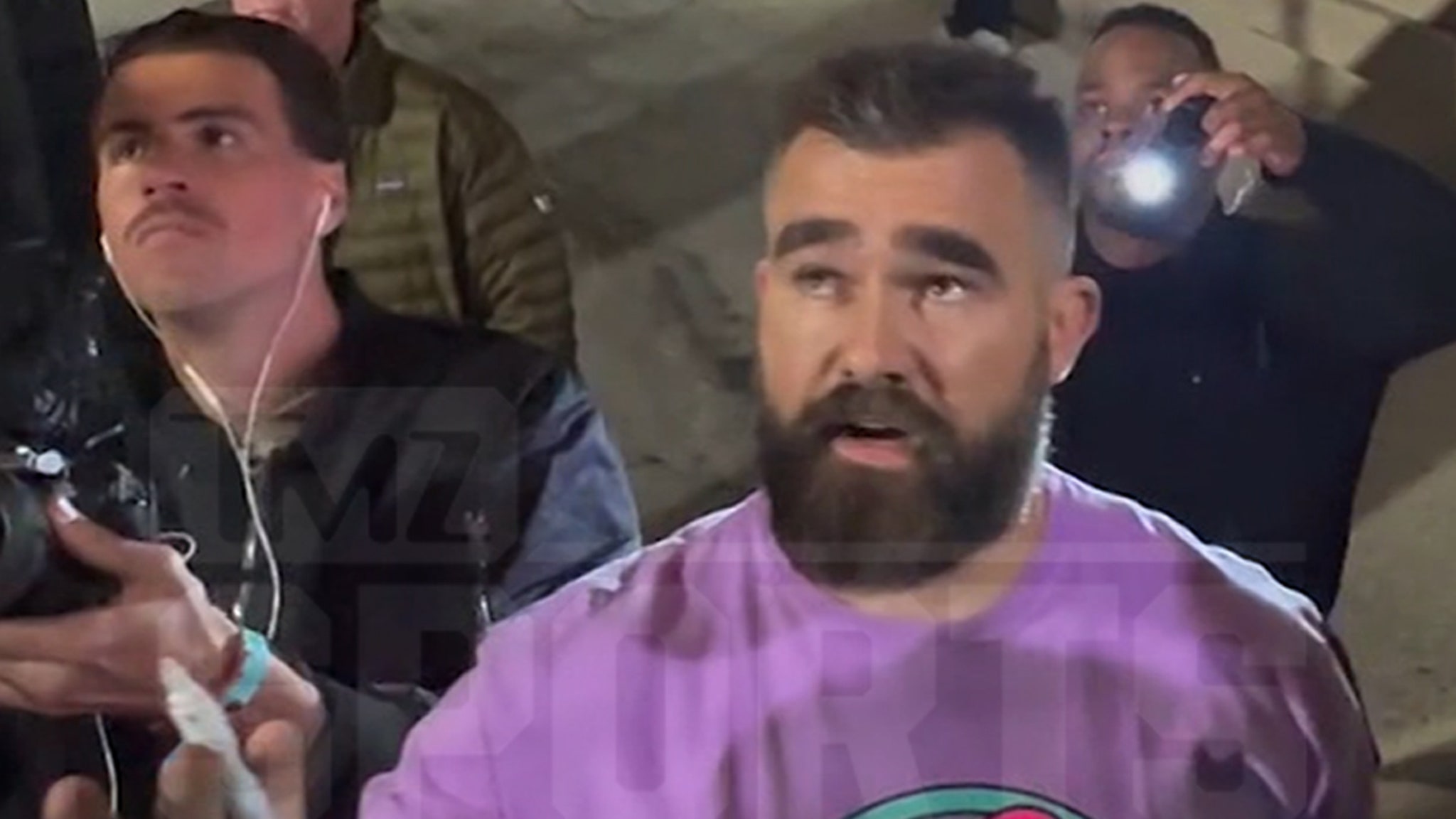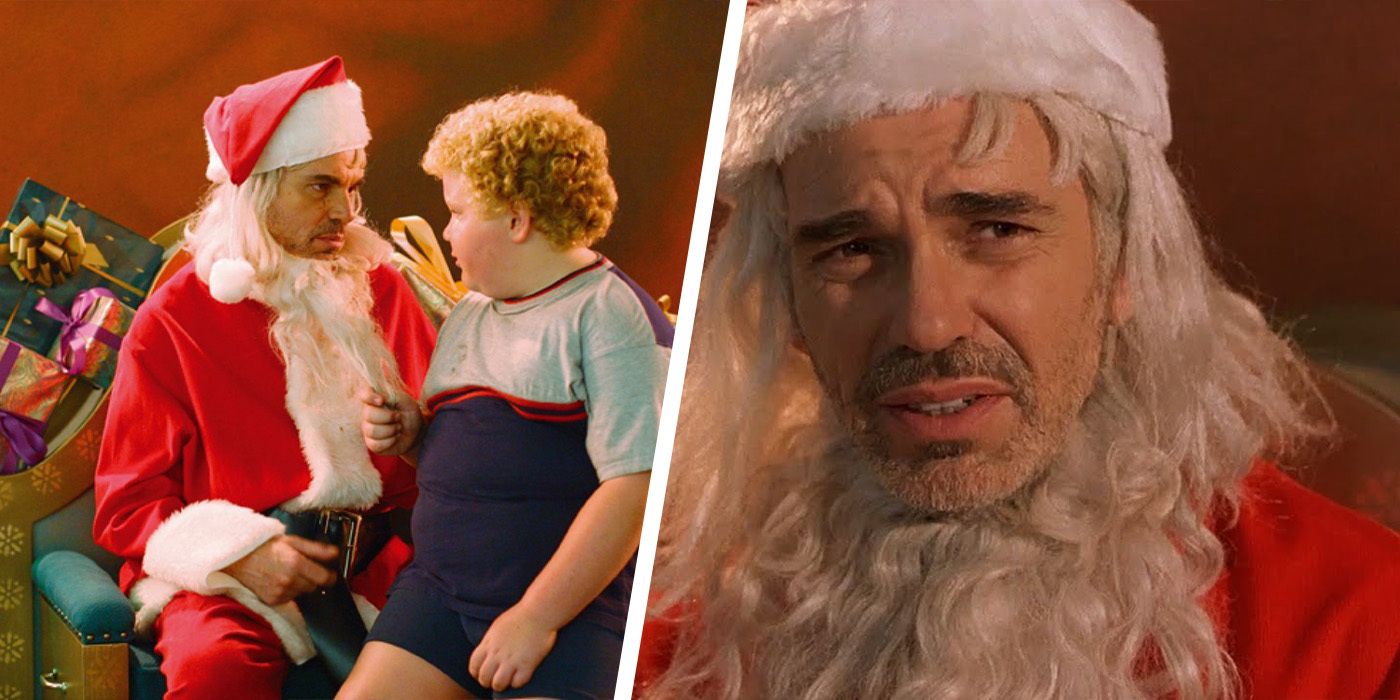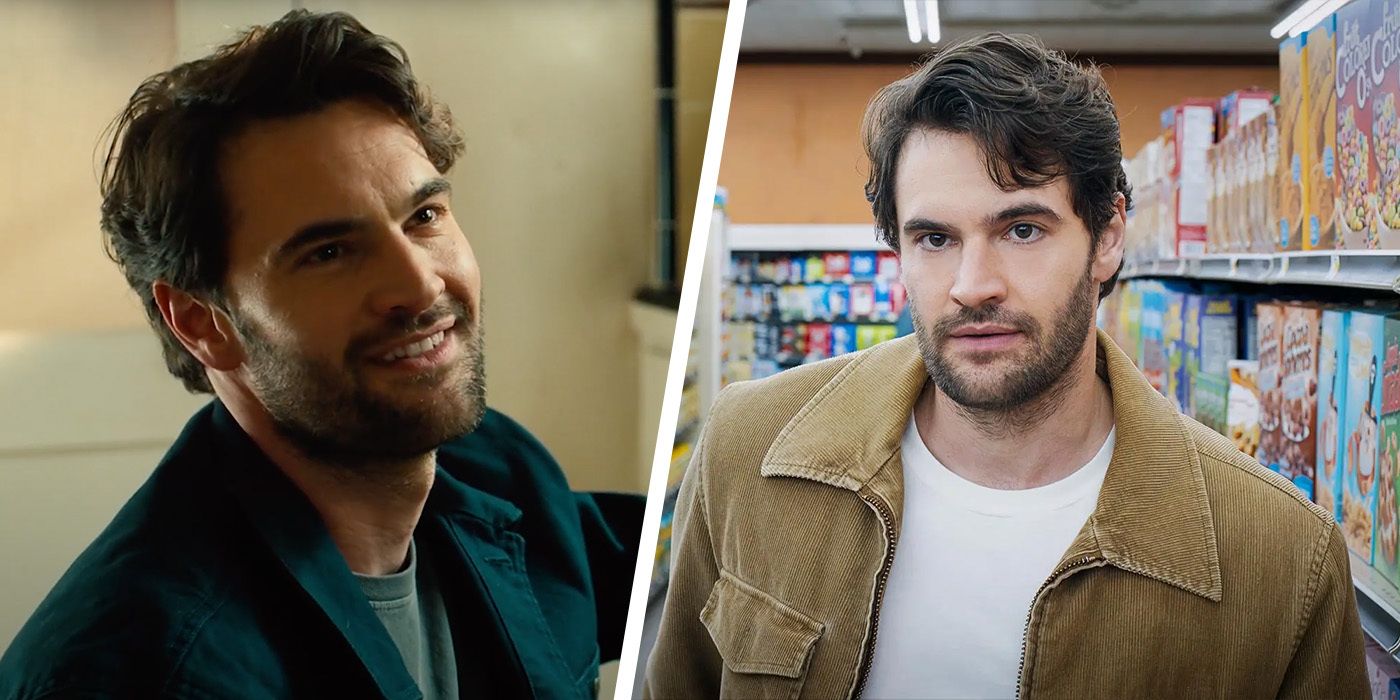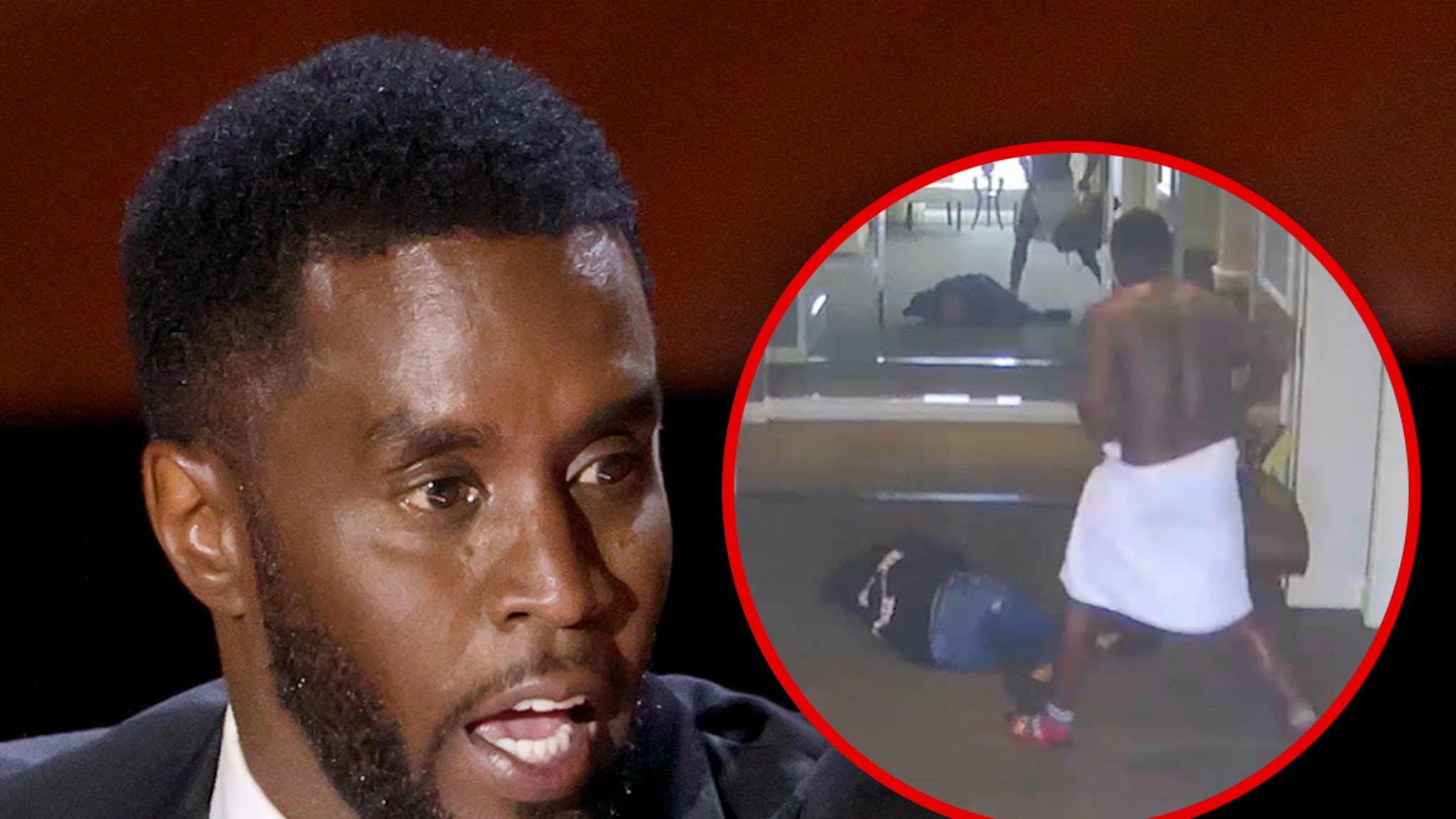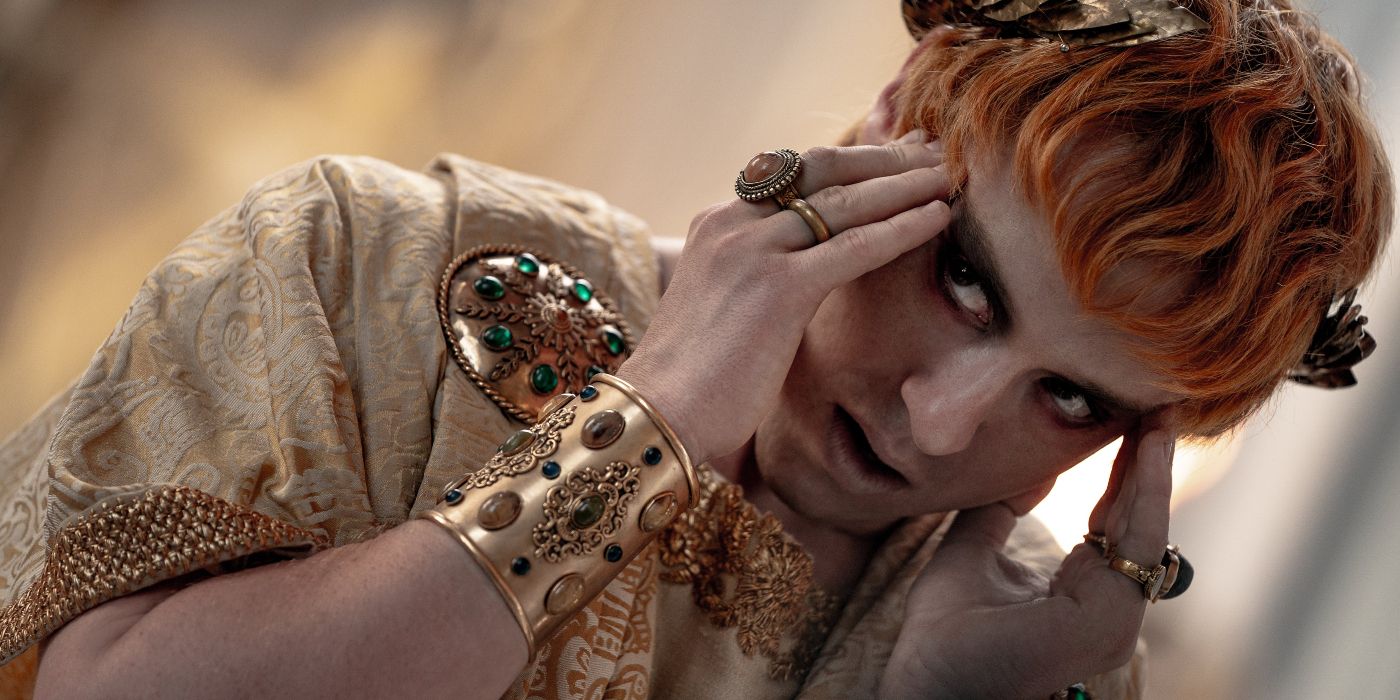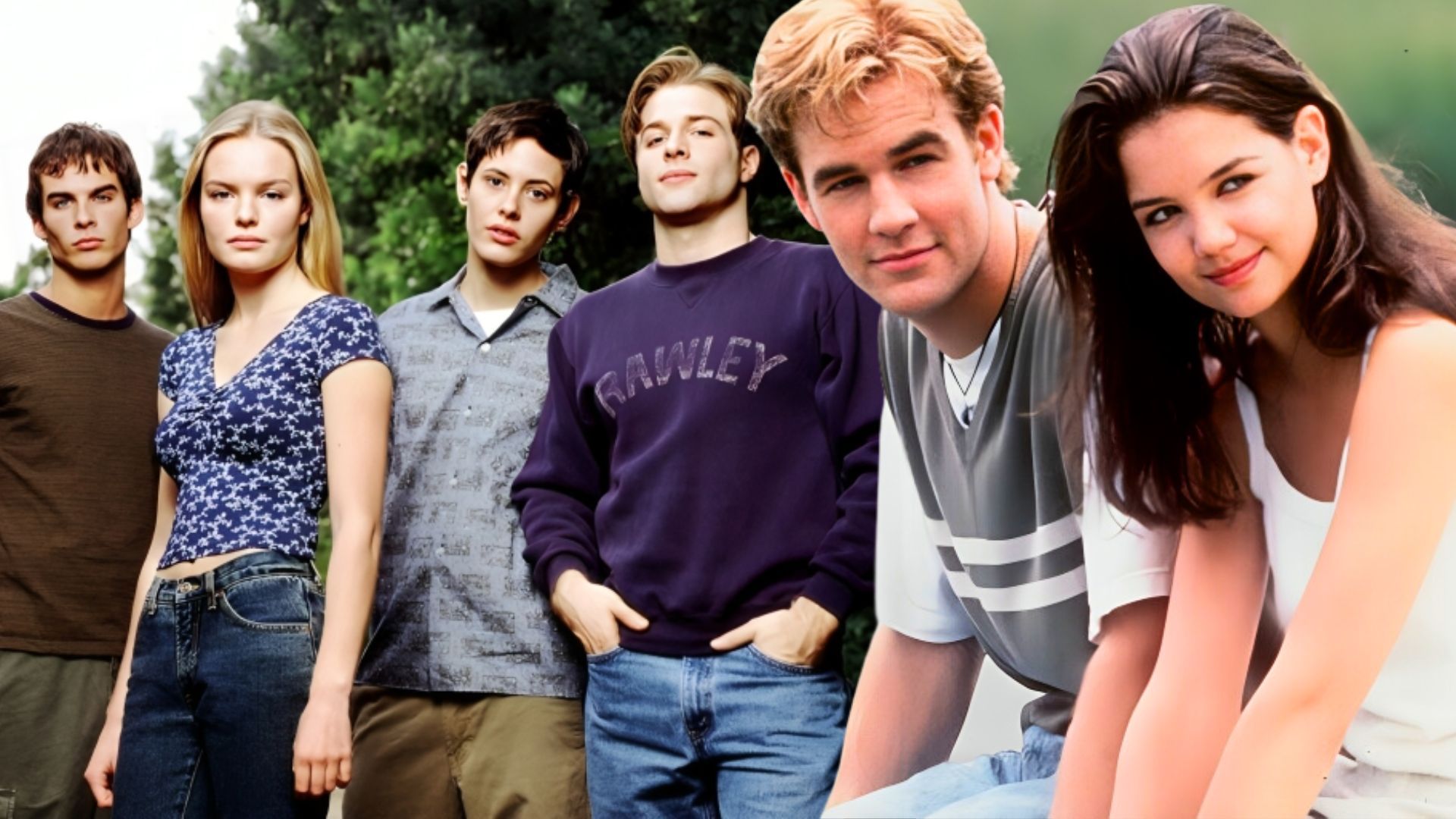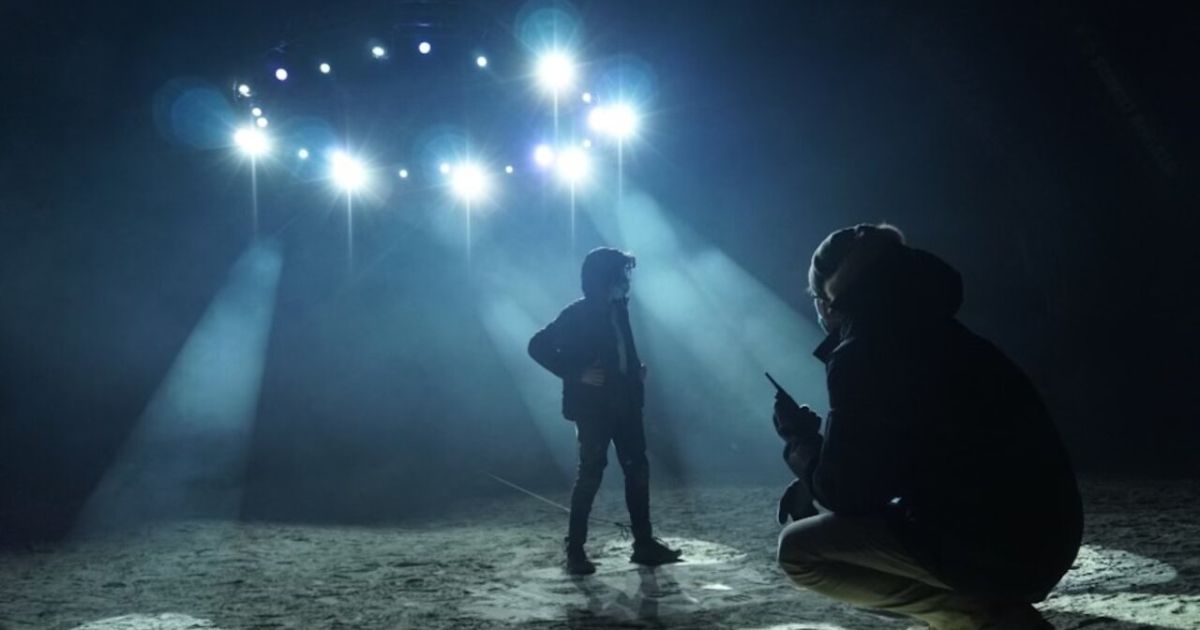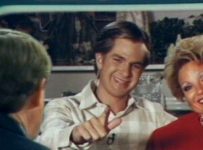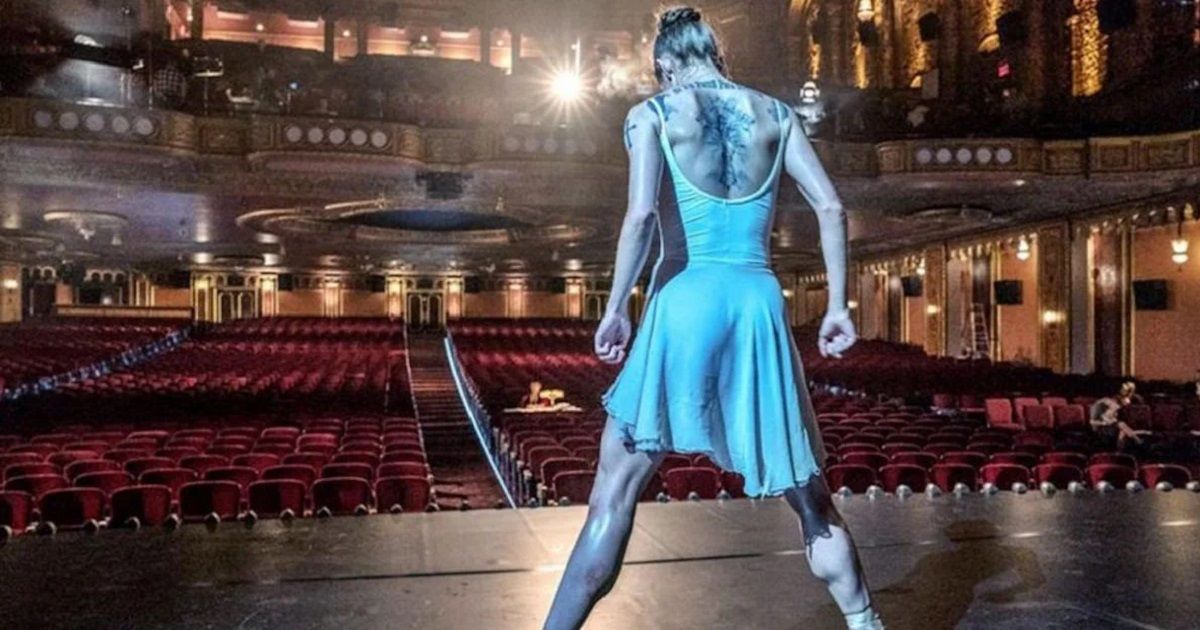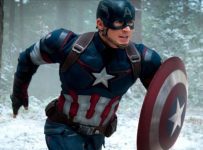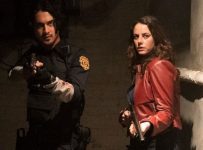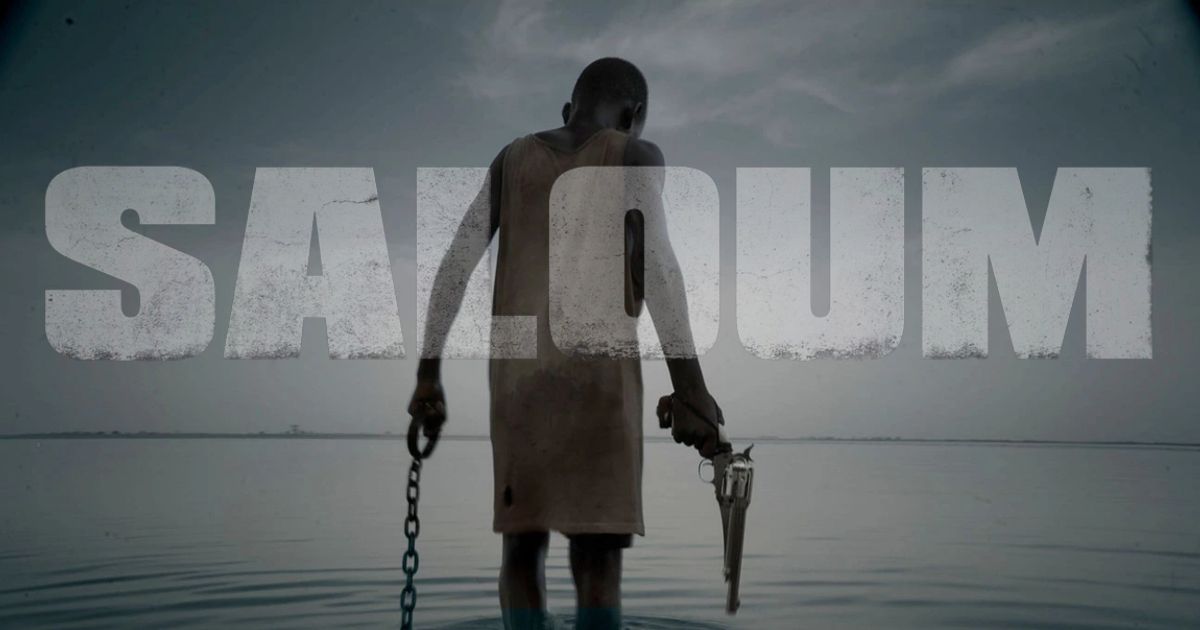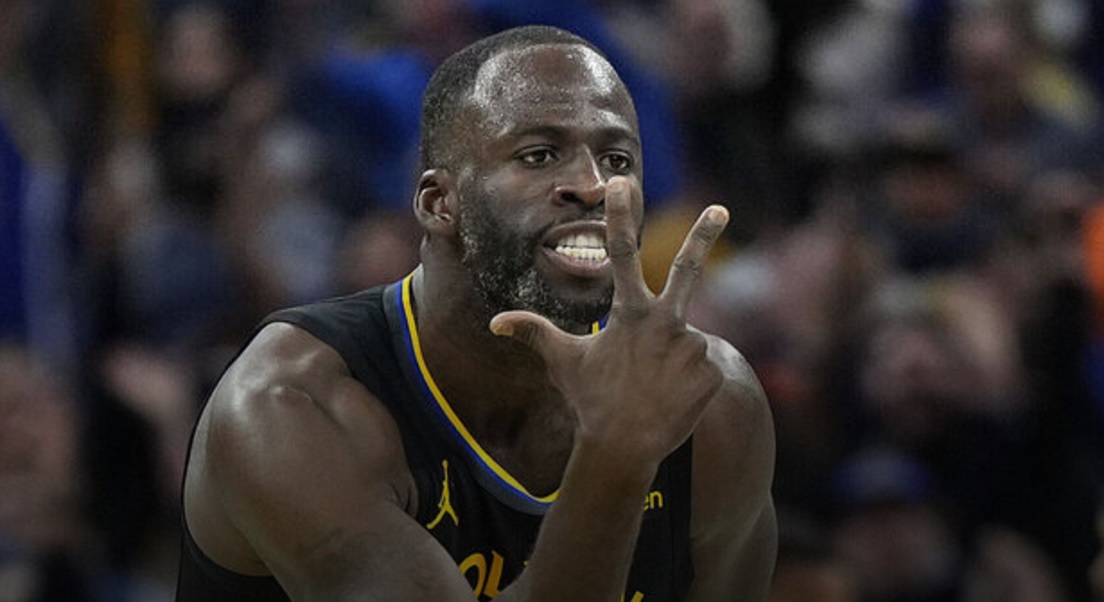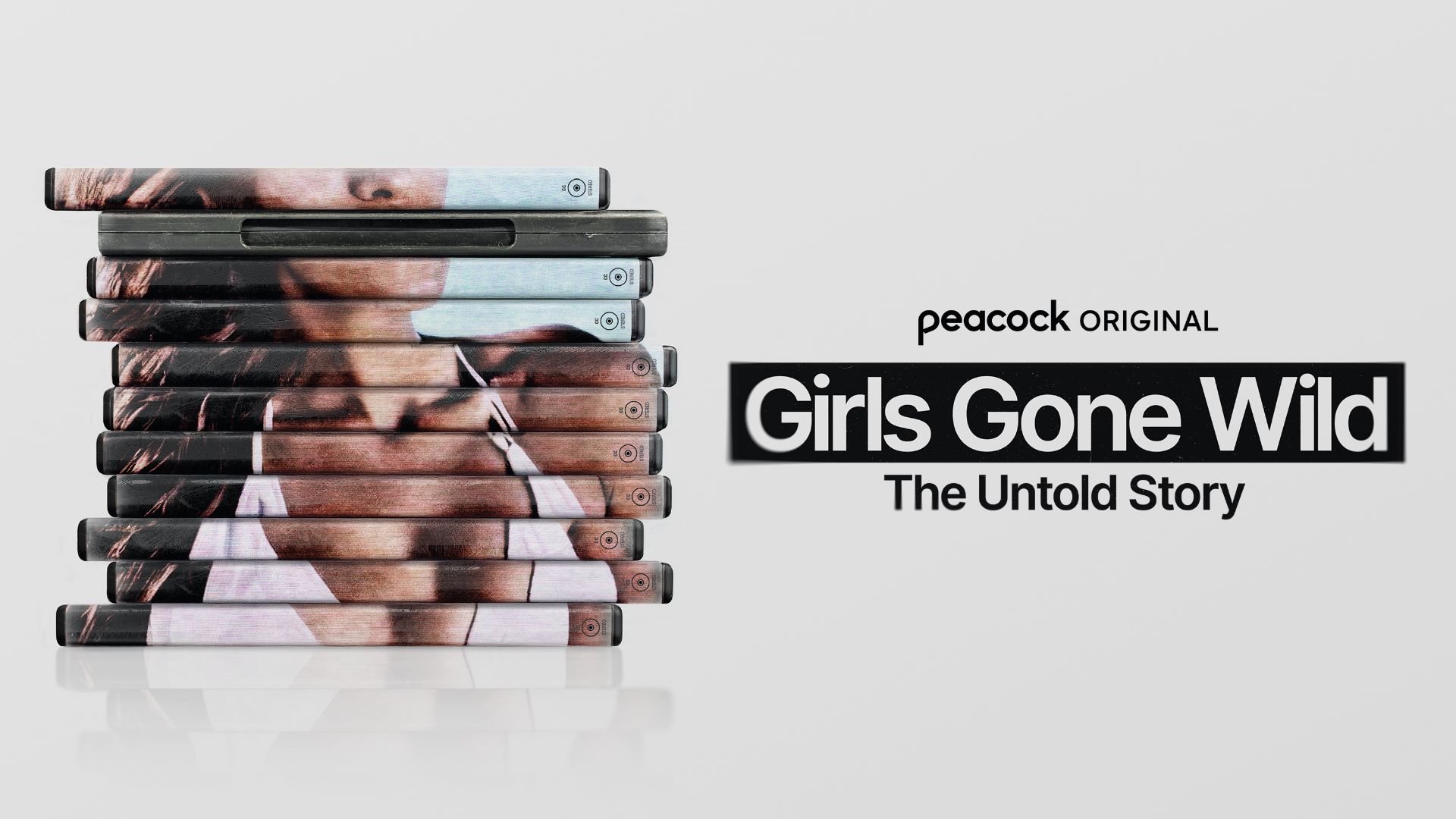Ghosts, grief, and God are all prominent themes in Tom Delonge of Blink-182’s directorial debut, Monsters of California. The story, which Delonge co-wrote with Ian Miller and Ben Kull, centers around a teenager, Dallas, who comes across research left behind by his missing — presumed dead — father. He recruits two of his friends and a girl he meets at a coffee shop to join him on a quest to uncover what really happened to his father. Along the way the group encounters a variety of different forms of paranormal activity as the military makes futile attempts to chase them down.
While there is a certain hard to resist charm that comes with a misfit group of ghost-hunting kids, there are some serious issues going on here. It doesn’t take long before it starts to feel less like you’re watching a science fiction movie and more like you’re stuck in the corner of a family gathering listening to your weird cousin ramble about aliens. There is a lack of focus, combined with an overemphasis and repetition of certain points that result in the ill-fitting, baggy pace and shape here.
However, this is not to say that there aren’t aspects that work, and depending on where you land when it comes to belief in extraterrestrial life, there are things to enjoy here.
How to Be Good at Grief
Monsters of California’s greatest strength is its exploration of the ways people turn to religion or other forms of spirituality in times of grief. Dallas and his mother have opposing responses; she turns to Christianity, and he goes down a supernatural rabbit hole. At dinner, when his mother asks him to join hands with her and the rest of the family to say grace, he instead launches into a story about he and his friends saw a ghost for the first time the night before.
Unsurprisingly, this spirals into conflict, and it soon becomes clear that the real issue between the pair is that they each believe the other to be handling the death of Dallas’ father incorrectly. Both are searching for an explanation in the face of his mysterious disappearance, but they both also presume that the other is avoiding processing the trauma.
This thread links to the film’s consistent theorizing that we create our own reality. In a voiceover, Dallas tells the audience about the basic quantum physics concept that objects don’t exist unless someone is looking at them, a kind of extension of a tree falling with no one to see it. Later, Richard Kind’s character tells the friends, “We have to use the weapons we have: free will, morality, consciousness.” Additionally, the explanation behind extra-terrestrial life that the movie presents us with adds up to a central thesis. These elements combine to suggest that we should lean on our community in times of need because what we give our attention to becomes what matters.
Related: 15 Horror Movies That Expertly Explore Grief and Loss, Ranked
Richard Kind Steals the Show
Cartel
When it comes to the casting, there are ups and downs. In the lead role as Dallas, we have Jack Samson, who handles the material well enough, but begs the question: how many teenagers do you know with a large neck tattoo? It’s a small detail but the incongruence of it can make the experience less immersive. What’s more is that Samson doesn’t seem to have the tattoo in real life, so it was a deliberate choice.
On the other hand, the three boys, Dallas, Riley, and Toe, who are played by Samson, Jared Scott, and Jack Lancaster respectively, do have good chemistry together. Their physical performances are over-the-top and slapstick in a way that makes sense in their world and ours. The constant bickering and play fighting between them conveys their length and depth of their friendships without having to describe it in words. They are as goofy and playful as you would expect a group of odd, paranormal hunting teenage boys to be.
The best performance, however, comes from Richard Kind as Dr. Walker, the old boss of Dallas’ father. Kind is an actor predominantly known for his comedic performances in ’90s sitcoms and current TV comedies (from The Goldbergs to Curb Your Enthusiasm), but here, he is rather subdued. He has an interesting energy to him; he doesn’t lean into the stereotypical conspiracy theorist trope, but creates something unique. By going for a more muted performance, he creates an almost eerie atmosphere, building more tension than he would have if he went down a campier route.
What’s the Point of the Women?
Cartel
Where Monsters of California goes really wrong with its characters is with the women. There are three female characters: Dallas’ mother, sister, and love interest. Of the three, his mother, Leah, gets the closest to having depth: she loves God and wants to marry her new boyfriend, which enrages Dallas. On the other end of the scale, Dallas’ sister, Meg, has absolutely nothing going on. Her purpose seems to just be to disapprove of Dallas and be the “normal” sibling, but if she weren’t there, the movie would be no different.
It’s the love interest, Kelly, who gets the most screen time, though the writers don’t give her much to work with when she is there. She and Dallas bond over the fact that his father recently died and hers is sick, and he decides that that’s enough of a reason to bring her along on the journey. From there onward, Kelly is predominantly just scared on Dallas’ behalf or scared for herself, which means that he is able to comfort her. Her characterization is so flat it doesn’t even get as far as being the manic pixie dream girl.
Related: 12 Most Underrated Movies About Aliens, Ranked
The rest of the friend group are given personality traits, even if they’re as simple as always being high, so it’s clear that the writers had it in them to add some depth to these characters. It’s a shame that not one of the three men who worked on the screenplay thought to put more effort into any of these women. Under different stewardship, Kelly could have been as fun to watch as the boys are, but instead she’s merely a prop, and not one that affects the story much at that.
The Conspiratorial Elephant in the Room
Cartel
Beyond these character-based issues, what truly sinks Monsters of California is the way it whacks you over the head with the point it’s trying to make. At a number of points in the 110-minute run-time, we are told that the government has known about aliens for decades and won’t tell the world because they think people can’t handle it. Characters also discuss how we need to maintain an open mind because extra-terrestrial and supernatural life is all around us if we just choose to see it. You’d have to have fallen asleep as soon as the movie started to have not noticed that despite the sci-fi label, the writers are trying to make a point about real life.
It’s not hard to learn that Delonge is a long-time alien fanatic. In an interview with The Guardian (where the interviewer was asked not to bring up aliens) Delonge shares, “It’s really all I’ve ever done outside of music and building a family,” so it’s clearly something he cares deeply about. Later in the same interview he adds, “Things were written in text thousands of years ago, like hearing voices in your head, a burning bush that was talking. The ancient texts may have called it God, but I’m just saying it’s not that simple,” which is said almost word for word in Monsters of California.
Of course, filmmakers’ personal experiences and opinions are going to influence the work they produce, and it’s not an issue that Delonge is an alien evangelist, the issue comes from the way he has gone about conveying those thoughts. The fact that characters speak lines that are almost exactly what he himself has previously said in interviews shows how little effort has gone into translating these ideas into fiction. This movie is lazily done, and this comes across all too clearly in the final product. What could have been a delightfully charming alien themed adventure is buried beneath conspiracy theories and a dusting of misogyny.
You can view the original article HERE.
